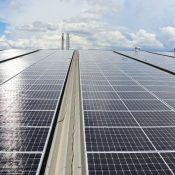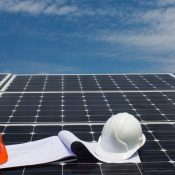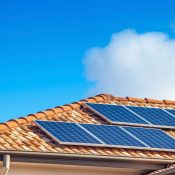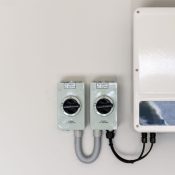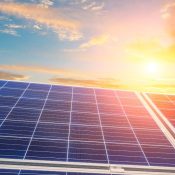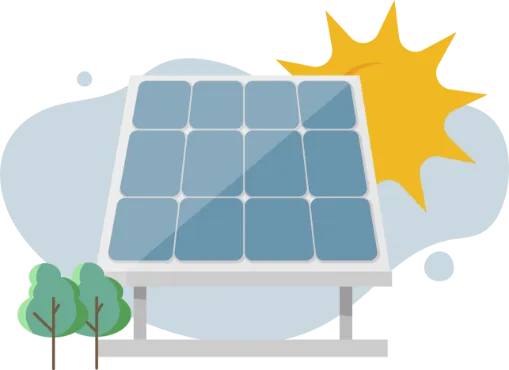Should I Install Solar on a Tenanted Property?
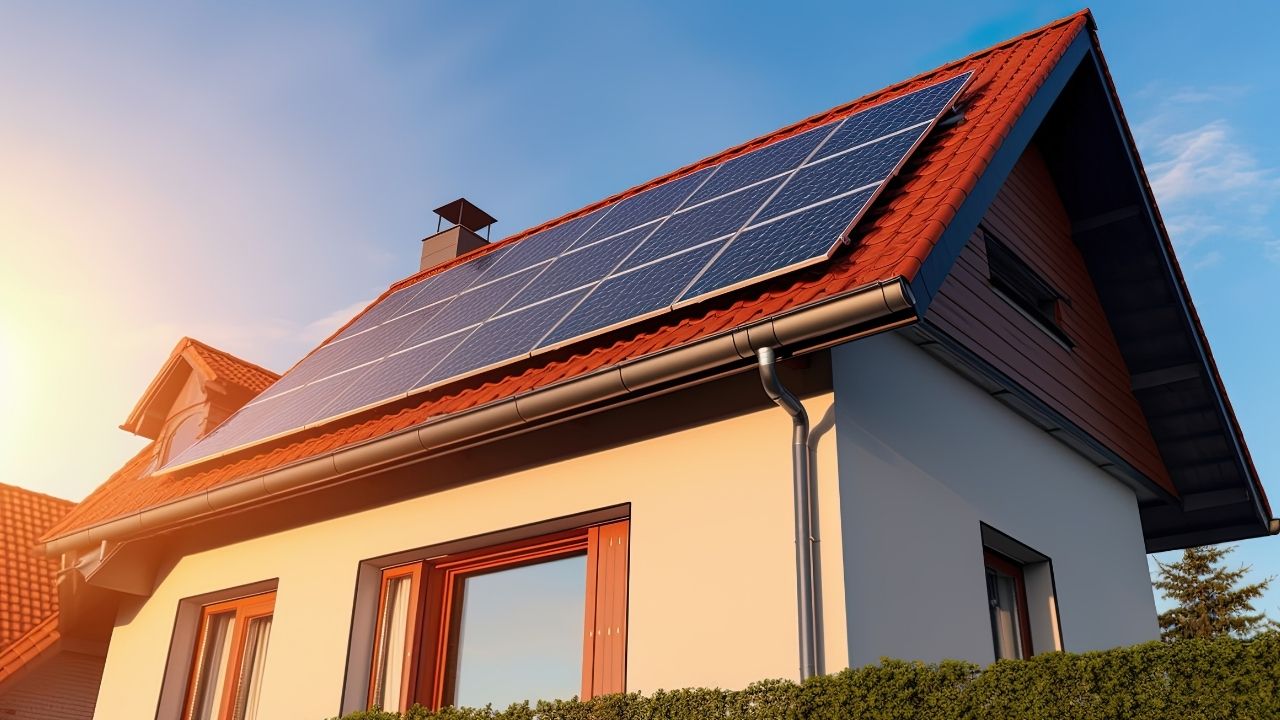
Have you ever wondered if you could put solar panels on a property you’re renting out? It’s a hot topic these days, with everyone looking for ways to save money and help the planet.
In this blog, we’re going to dive into that question and explore how landlords and tenants can work together to make solar energy a reality on rental properties. We’ll look at the benefits, the tricky bits, and some smart alternatives if putting panels directly on your property isn’t an option.
So, whether you’re a tenant dreaming of lower energy bills or a landlord looking to boost your property’s value, this is for you! Let’s get started and shed some light on solar power for tenanted properties.
Difficulties in Installing Solar on a Tenanted Property
Now, let’s tackle the tricky part: the challenges of installing solar panels on a property you’re renting out. From understanding the financial implications to navigating the landlord-tenant dynamics, there’s a lot to think about. Stay tuned as we unpack these challenges and offer some practical solutions!
Choosing the right solar installation company
When you’re thinking about adding solar panels to a rented property, the first step is finding the right company to do the job. It’s not just about picking the first name that pops up in a Google search; it’s about finding a trustworthy and experienced team.
Therefore, look for a company that has a strong track record and mind-boggling reviews from previous customers. They should know their stuff, from the latest solar technology to the nitty-gritty of installation. And it’s not just about the installation; you want a company that offers excellent aftercare and support.
Remember, a solar panel system is a long-term investment, so you want to work with people who’ll be there for the long haul.
The need for multiple quotes and thorough research
Now, you might think one quote is enough, but it’s always better to shop around. Getting multiple quotes gives you a better understanding of what a fair price is and what services are included. This isn’t just about finding the cheapest option; it’s about getting the best value for your money. And don’t just stop at the quotes. Dive into some serious research.
Check out each company’s credentials, ask about their experience with tenanted properties, and don’t be shy to ask for references. You want to be sure that the company you choose not only fits your budget but also understands the unique challenges and requirements of installing solar panels on a rental property.
Installation and Maintenance Challenges
Tackling the installation of solar panels on a rented property isn’t an easy task. One of the main hurdles is the upfront cost. Solar installations are an investment, and the initial price tag can be costly. This is especially significant in a rental scenario, where the question of who foots the bill—the landlord or tenant—comes into play.
Plus, there’s the matter of the property itself. Not every building is suitable for solar panels; issues like the roof’s condition, its orientation, and even local weather patterns play a crucial role in determining if a property is a good candidate for solar power.
Then there’s the ongoing maintenance. Solar panels might be low-maintenance compared to other technologies, but they’re not no-maintenance. They need regular checks to ensure they’re working efficiently and safely. This includes routine cleaning to remove dirt or debris, which can impact their effectiveness, and periodic technical inspections.
For landlords, this means figuring out maintenance responsibilities and costs—is it something you manage, or is it down to the tenants? Plus, in the longer term, there’s the need to plan for potential repairs or replacements, ensuring the system continues to operate effectively over its lifetime.
Safety Precautions and Standards Compliance
While installing solar panels, ensuring safety throughout the installation and the life of the system is critical. This involves making sure the installation meets all necessary safety standards and building regulations. In Ireland, following these safety standards strictly is essential to prevent problems like electrical fires or shocks.
Choosing a certified installer who is knowledgeable about Irish regulations is key. They should ensure your solar system complies with all local requirements and assist with any approvals or inspections needed by Irish authorities. Their expertise will not only make your installation efficient but also ensure it is safe and compliant with local regulations.
But safety isn’t just a one-time thing at installation. It extends to the ongoing operation of the solar panels. This involves regular checks to ensure everything is functioning correctly and safely. For landlords, this means setting up a clear agreement with tenants on how these checks will be conducted and who’s responsible for them. It’s all about preventing problems before they arise. Good maintenance not only ensures safety but can also improve the efficiency and lifespan of your solar panel system, making it a better investment in the long run.
Landlord-tenant agreements
Navigating the landlord-tenant relationship when installing solar panels is a crucial part of the process. It’s essential to have a clear, written agreement that outlines each party’s responsibilities. This agreement should detail who pays for the installation and maintenance costs and how these costs will be recovered, especially if the installation leads to energy savings for the tenant.
For instance, if the landlord pays for the installation, they might recoup the costs through a slight increase in rent or a service charge. On the other hand, if the tenant pays, they might expect a longer lease agreement or some form of compensation.
The agreement should also cover the maintenance responsibilities. Who is in charge of regular upkeep and repairs? In some cases, the landlord might handle it, adding the costs to the rent or service charges.
In other scenarios, the tenant might take on these duties, particularly if they benefit directly from lower utility bills. It’s also important to consider what happens at the end of the tenancy. If the tenant has contributed to the cost of the solar installation, what compensation, if any, do they receive when they move out? These are all critical factors to iron out in a comprehensive landlord-tenant agreement to ensure a smooth and mutually beneficial solar panel installation.
Financing options and costs
When it comes to the financial side of installing solar panels on a tenanted property, there are a variety of options to consider. Firstly, it’s important to understand that while the initial outlay for solar panels can be significant, there are ways to manage these costs. For landlords, solar panel installation can be seen as an investment in the property, potentially increasing its value and attractiveness to eco-conscious tenants.
In terms of financing, options such as solar leases, Power Purchase Agreements (PPAs), or green loans can be explored. A solar lease allows you to rent the solar panel system, avoiding upfront costs, while a PPA involves a solar company installing panels on your property and selling you the electricity at a reduced rate.
For tenants, the financial benefits of solar panels come in the form of reduced energy bills. However, they might need to negotiate with their landlord about who benefits from these savings, especially if they contribute to the installation cost. It’s crucial to have a clear understanding of the potential return on investment (ROI) and how long it will take for the solar panels to pay for themselves through energy savings.
Additionally, both landlords and tenants should research any available government grants, tax incentives, or rebates that can offset the installation costs. Remember, while the initial expense can be high, the long-term savings from reduced energy bills and potential government incentives can make solar panels a financially sound choice.
Alternative solar options for renters
Renters keen on utilising solar energy, yet unable to install traditional solar panels, have some viable alternatives. Portable solar panels are a flexible option, particularly appealing because of their ease of setup and mobility. These panels are a perfect match for renters who frequently move, allowing them to use solar energy for various purposes such as charging devices or powering small home appliances.
Another excellent choice for renters is participating in a community solar project. These projects, sometimes known as solar gardens, are shared solar power arrangements. Renters can buy a share of a solar installation located elsewhere and receive credits on their electricity bill proportionate to their share of the project. This option offers the benefits of solar power without any installation required at the renter’s residence.
Benefits of solar panels on rental properties
The installation of solar panels on rental properties brings significant advantages for both landlords and tenants. Key among these is the potential for reduced electricity bills, making the property more attractive to tenants who are conscious of energy costs. This attribute can enhance the appeal of a property in the competitive rental market.
For landlords, solar panels represent a valuable investment that can enhance the property’s value and attractiveness. This improvement can lead to tax incentives or rebates in certain areas, depending on local regulations and incentives for renewable energy.
Additionally, properties with solar panels might attract environmentally conscious tenants, potentially resulting in longer tenancy periods and establishing the landlord as an environmentally responsible property owner.
Final Thoughts!
Installing solar on a tenanted property, while challenging, offers significant benefits and viable alternatives for both landlords and tenants. We’ve navigated through the difficulties, from selecting the right installation company to understanding the intricacies of maintenance and safety standards. We’ve also explored how clear landlord-tenant agreements and various financing options can pave the way for a smoother transition to solar energy.
For renters, options like portable solar panels and community solar projects provide flexible solutions. Remember, the journey to solar energy is not only about cutting down energy costs but also about contributing to a sustainable future. If you’re considering solar panels for your rental property, now is the time to take action. Embrace the future of energy with Going Solar – reach out to us and take the first step towards a greener, more cost-effective property solution.
Planning a switch to solar energy?
Contact Going Solar now and Get Free Advice & Quote Within Minutes!
Frequently Asked Questions
Contact Going Solar Now!
Joe Brennan
Founder @ Going Solar
Joe Brennan, the founder of Going Solar, is dedicated to making solar power mainstream in Ireland and meet SEAI objectives. With a focus on affordability and sustainability, he is bringing renewable energy solutions to homes, reducing costs & environmental impact.
Recent Posts

